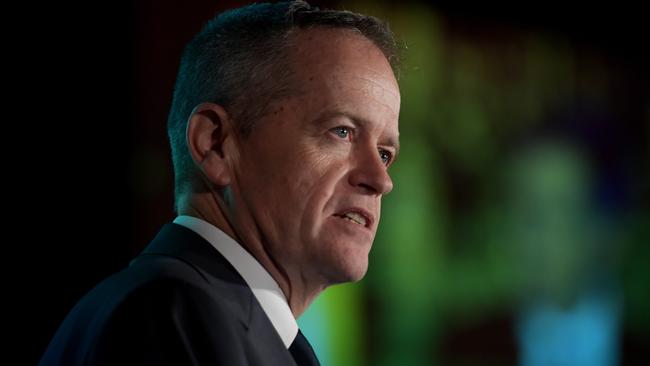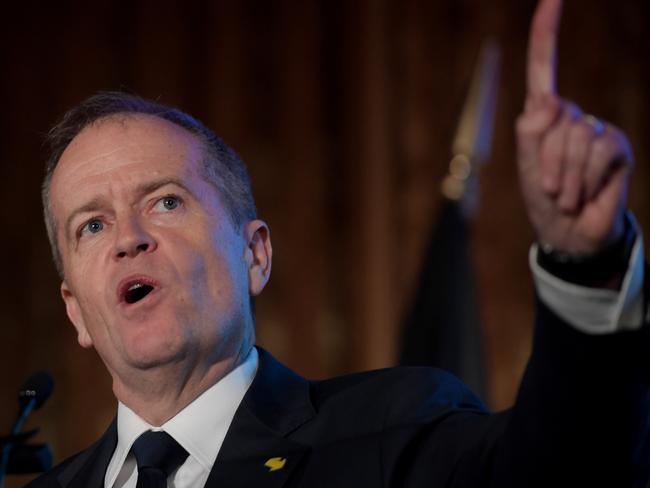Labor’s tax overhaul would target inequalities in ‘two-class tax system’
LABOR wants a crackdown on $17 billion worth of tax minimisation schemes in a revenue offensive it insists wouldn’t affect 98 per cent of Australians.

LABOR wants a crackdown on $17 billion worth of tax minimisation schemes in a revenue offensive it insists wouldn’t affect 98 per cent of Australians.
It is targeting trusts and income splitting measures, currently quite legal, as part of a vow to counter economic inequality. And Opposition Leader Bill Shorten believes the measures would add $17.2 billion to government revenue over 10 years.
Mr Shorten today is sketching out a tax overhaul he said will end the system of ordinary wage earners subsidising the tax manoeuvres of high income earners.
“Australia currently has a two-class tax system,” he said.
“While most people pay the tax that they owe through normal PAYG arrangements, the system includes generous subsidies and loopholes which allow some wealthier people to minimise their tax.”
A Labor government would introduce a standard minimum 30 per cent tax rate for discretionary trust distributions to beneficiaries aged over 18 years.
This would be aimed at trusts which distributed income on a discretionary basis, often to people on low tax rates, to lower the overall tax bill.
Mr Shorten said this would not affect deceased estates or disability trusts, would not apply to charity and farm trusts, and would not rob small businesses of asset protection.
He said trusts were used for a range of legitimate reasons, but that “in some cases, trusts are used solely for tax minimisation”.
“Wealthy individuals are much more likely to benefit from a trust than low and middle income earners,” he said.

“The average amount of money held in private trusts by the wealthiest 20 per cent of households is $123,000, while for the next wealthiest quintile it is just $4,000.”
A Labor government also would clamp down on “artificial income splitting,” through which income is divided among family members for tax purposes.
And Mr Shorten claimed a supporting authority from the Liberal Party — former Prime Minister and Treasurer John Howard.
“Labor’s policy builds on the reforms of former Treasurer John Howard in the early 1980s,” he said.
“Mr Howard cracked down on artificial income splitting to minors by taxing distributions at the top marginal tax rate.
“Labor’s policy extends this principle to adult beneficiaries, but at a less punitive rate of 30 per cent.”
The measures announced today are in addition to policies announced in May, including an overhaul of negative gearing, changes to superannuation, and restrictions on capital gains tax.
And they are all elements in Labor’s pledge to reduce and eliminate inequality, a strategy aimed at voters without pay rises for the past three years, rising household E lenses, and underemployment.
It also is part of a campaign to portray the government of Prime Minister Malcolm Turnbull as short of ideas and empathy with voters.
This campaign was behind Mr Shorten’s comment to the NSW Labor Party conference today: “friends, we lead again.”
He said: “Every year in Australia, there are high-income earners who use discretionary trusts to park their money in a lower tax bracket. And the rest of the community are left to subsidise this.
“That’s not fair on Australians who’ll never be able to afford this option.
“A healthcare worker at the Nepean Hospital can’t go down to payroll and request that they split her income to reduce her tax. A hospitality worker in Blacktown doesn’t get to give herself a tax cut by moving some money into her partner’s account.
“There is nothing wrong with people earning a good income, or profiting from their investments. Nothing against parents giving their kids a helping hand.
“I don’t begrudge anyone the money they’ve made. But our system should not be subsidising those who are already wealthy — and our budget cannot afford to.”



